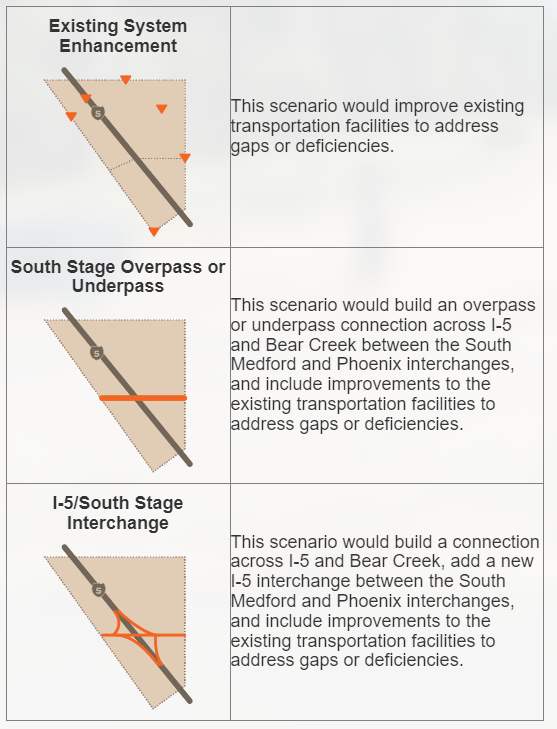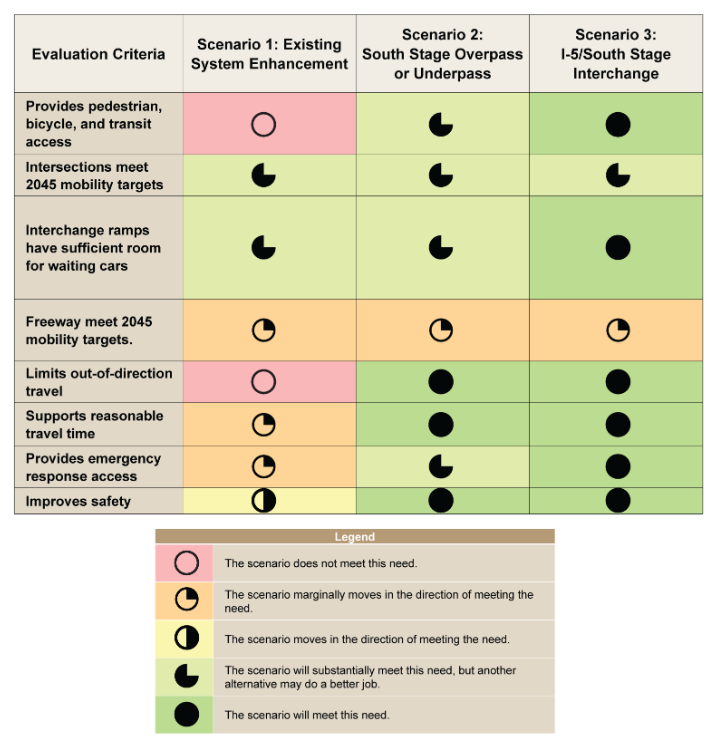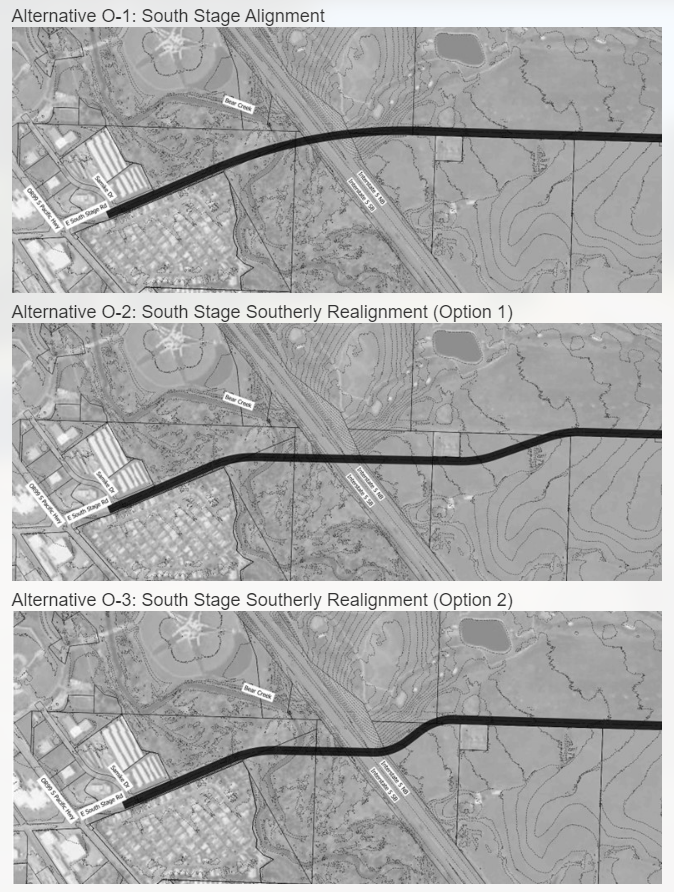The next step in this process was to develop potential solutions (alternatives) to address the identified gaps (i.e., a section of roadway without a bike lane or sidewalk) and deficiencies (i.e., a roadway where travelers experience overly long delays or safety issues) within the study area.
(Infographic)
- Define Overarching Solution Scenarios.
- Screen Overarching Solution Scenarios.
- Develop Alternatives within Feasible Solutions Scenarios.
- Screen Alternatives According to Technical Feasibility.
- Screen Alternatives According to Economic Feasibility.
- Solicit Agency, Tribal and Community Feedback.
- Assess Alternatives According to Environmental Impacts.
- Recommended Alternative(s).
Define Overarching Solution Scenarios
To address the project study area's safety, operations, and connectivity needs, the project team began with three overarching solution scenarios:

Screen Overarching Solution Scenarios
To determine which scenarios would best meet the project's purpose and needs, the project team screened these three scenarios according to a series of evaluation criteria based on the Project's Purpose and Need. Based on this screening, Scenario 1 (Existing System Enhancement) was removed from further consideration because it would not sufficiently meet the project study area’s safety, operations, and connectivity needs independently.

Develop Alternatives within Feasible Solution Scenarios
From the two remaining scenarios—Scenario 2: South Stage Overpass or Underpass and Scenario 3: I-5/South Stage Interchange—the Project Development Team, Project Advisory Committee, Project team, and community identified 8 initial alternatives for each scenario (16 total alternatives).

Assess Alternatives According to Environmental Impacts
Technically and economically feasible alternatives shown below were preliminarily assessed according to environmental impacts. This assessment is summarized below.
(Images and table)
Evaluate and Refine Feasible Alternatives & Recommend Alternative(s)
Based on community input, the Project Team will evaluate which technically and economically feasible alternatives should continue forward for further refinement and environmental screening.
Then, the Project Team will recommend alternative(s) to be documented in the draft Facility Plan. The Draft Facility Plan will be presented to and reviewed by the Project Development Team, Project Advisory Committee, and community in July/August 2024. Based on additional feedback, the Project Management Team will recommend alternative(s) to be considered by the Planning Commission and City Council during public hearings for adoption into the Medford Transportation System Plan. If the Facility Plan is adopted by the City of Medford, the Oregon Transportation Commission will hold a hearing to consider its adoption into the Oregon Highway Plan.